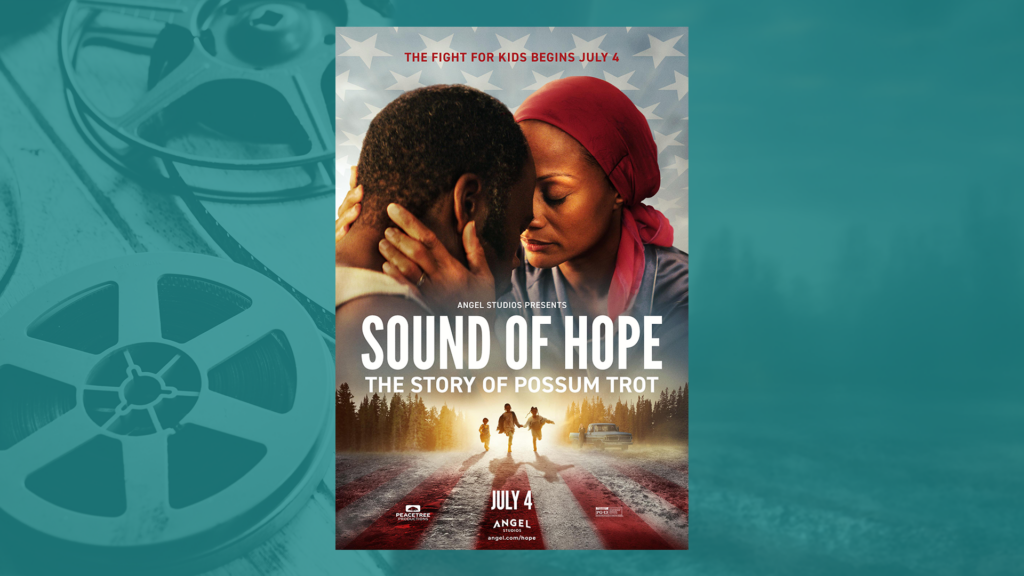
5 Takeaways from “Sound of Hope: The Story of Possum Trot”
Have you gone to the theaters to see Sound of Hope yet? It’s a film based on a true story that happened right here in Texas.
Sound of Hope: The Story of Possum Trot is inspired by the powerful true story of Donna and Reverend Martin as they ignite a fire in the hearts of their rural church to embrace some of the more difficult children to place within the child welfare system. Typically, this refers to older children who have experienced very high levels of trauma. By doing the impossible—inspiring 22 families to adopt 77 children—this East Texas community proved that together, with real, determined love, we are able to advocate for our cities’ most vulnerable kids.
The film was released on July 4th and brought in $6.8 million at the box office over opening weekend. We know there may be many people who have either seen this movie already, or plan to, and might be wondering how it should inform our perspective of foster care, adoption, and our responsibility as a community to act.
To help guide the conversation around the film, our team has put together our five biggest takeaways from the movie:
1) Trauma is real.
The movie includes many scenes that effectively depict the harsh realities of the trauma children endure. This trauma can lead to behaviors that are difficult for foster or adoptive parents to manage, often leaving families feeling overwhelmed. As a result, children may end up moving from one home to another.
Thankfully, we are not alone! There are so many effective tools, resources, and services available to help us support families, care for children, and build a stronger community together. Here are just a few of the resources we recommend to help you get started:
2) Context matters.
Some critics of the movie argue that the story it portrays may not be a realistic outcome for every community.
It’s important to recognize that the events in Possum Trot took place in a specific location and time, addressing the unique needs of that community. The movie presents a true story of what happened there rather than a blueprint for what should happen in all communities.
The Houston area is vast and the needs of families vary greatly across the city. Instead of trying to recreate the story of Possum Trot here in Houston, a better place to start might be by asking, “What are the unique needs in my community?” Whether you represent a faith community, a non-profit, are a dedicated worker, or a passionate individual, this question is a great starting point. By understanding our own community, we can develop collaborative solutions that create lasting change for children and families. If you haven’t already, we recommend watching our recent As One Documentary, which showcases how identifying gaps in our community and coming together as one can help families heal and children thrive.
3) Community support is vital.
Although the movie doesn’t fully depict the children’s past experiences, it’s clear that their trauma stems from hurt caused by previous relationships. If relationships can cause hurt, then healing must also come through transformative relationships. This applies not only to the children but also to parents and families. Families cannot thrive in isolation; they need friends and relatives who are willing to walk alongside them through the joys, sorrows, and daily uncertainties. It’s so important to build a system of support for the entire family. Ideally, we want to support families and promote stability long before the state intervenes.
Alongside the many resources available across the city, our team has also developed community support by strategically partnering with local organizations to provide essential assistance to children and families in need through our Response Network. You can reach out through our website if you’d like to learn more about these resources or how you can get involved. If you are a family or know a family currently caring for children, take a look at this Family Profile Form, which is designed to help families express their needs before they become urgent.
4) Consistency is key.
The caseworker in the film, Susan, stands out as one of the most consistent advocates for both the children and the Martin Family. Someone once told me that 90% of successfully supporting foster care is simply showing up consistently for the kids and families in need, regardless of the challenges they face.
If you’re a family supporting children and have people in your corner, I encourage you to stay open to others who want to support you. If you’re not in a position to open your own home to children right now, consider the following and reach out to us to discuss where to start:
- Do you know a family that could use your support but aren’t sure how to help? Let us know and we can suggest a few ways to get started.
- Many organizations are looking for reliable adults to consistently show up in the lives of kids. We’d love to connect you with one! Click here to check out a great organization doing work around mentorship for older youth.
- There are foster closets and other non-profits already serving families that could use simple support like a gift card, a meal, or a babysitter. We’d be happy to point you in the right direction when you’re ready!
- Do you own a business or know of a business that could be used to bring consistent change in a community? Check out Petra Cares as an example of seeing automotive services as a way to bridge the gap for kids and families.
5) Yes, adoption is important, but everyone can do something.
While this film focuses on the transformational power of a community stepping up through adoption, this isn’t the only way we can be inspired to act. Every child deserves a loving, stable home, and while we are passionate about helping children find those families, becoming a foster or adoptive family is just one of the many ways to serve along the River.
Everyone can do something—babysitting so parents can have a date night, becoming a mentor, advocating for vulnerable children and families, giving financially, delivering meals, consistently praying over these efforts, volunteering your time, etc. There are so many ways to use your gifts and talents to serve families.
Want to find a way to serve? We’d love to connect with you!
There are many lessons we could take away from Sound of Hope: The Story of Possum Trot, but the most important one is that when organizations, churches, and individuals step up to make a difference for the most vulnerable, the foster care system is impacted for the better! The film’s call to action might seem like a push toward adoption, but we want you to know that making a significant impact doesn’t require leading your community toward adoption. Often, meaningful change comes from taking one small, actionable step toward helping kids and families heal.
We hope this movie will inspire you to find your place along the River to discover the unique way you can make a difference for families and children in Houston. If we can help connect or inspire you in any way, reach out using the “Connect with Us” form at the bottom of our website!


